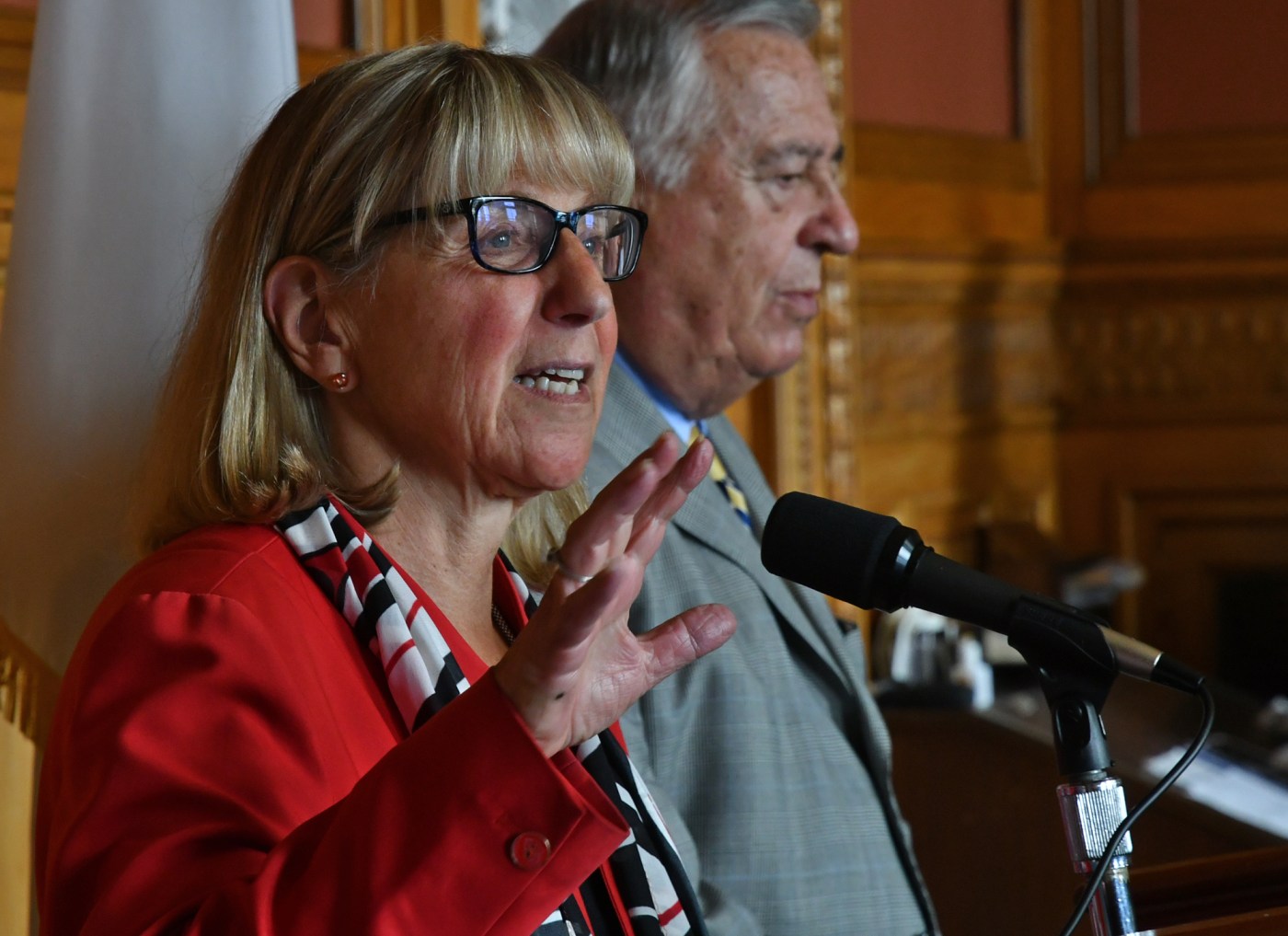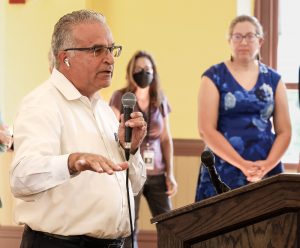
Beacon Hill feud breaks out over timing of Boston tax bill, safe injection sites
House and Senate relations appeared to take a frosty turn Tuesday when two top Democrats publicly feuded over the timing of separate proposals that would legalize overdose prevention centers, also known as safe injection sites, and allow Boston to hike its commercial tax rates.
The spat started Monday when House Speaker Ron Mariano expressed frustration at a Senate plan to take up the overdose prevention center bill Tuesday, the day before the end of formal lawmaking for the two-year legislative session.
The Quincy Democrat said advancing the measure Tuesday, with only hours left until lawmakers were set to turn their focus to their reelection campaigns, placed a “very difficult expectation” on the House to quickly review and debate a “major proposal.”
He went so far as to say, “It sort of tells me you’re not really serious about passing the bill to begin with.”
Senate President Karen Spilka threw those words back at Mariano Tuesday, only hours after the House said it planned to pass the commercial tax rate bill, a controversial measure that has drawn support from Mayor Michelle Wu and city councilors but opposition from business groups.
Spilka said senators had not “debated, discussed, nor even seen the bill, the new complex bill,” and said she could “not respond” when asked if the Senate planned to take up the proposal Tuesday or Wednesday.
“And as you know, any time you release the bill the day before session ends, it’s a very difficult expectation for us to hear it, especially when it has new proposals, major proposals that haven’t had the opportunity to be debated or voted on. It sort of tells you that they’re not really serious about passing the bill to begin with,” Spilka said, quoting nearly verbatim Mariano’s comments on the overdose prevention center bill from a day earlier.
The commercial tax policy bill was first approved by the Boston City Council in June, was the subject of a Revenue Committee hearing on Beacon Hill earlier this month, and cannot be changed by the Legislature because it is a locally approved proposal.
The overdose prevention center bill is a rewrite of a House measure that cleared the chamber in June. Representatives looked to increase access to overdose reversal drugs and equipment but did not touch on overdose prevention centers, which have received the support of the state’s Department of Public Health.
Both branches of the Legislature routinely release bills with little notice to their members, often only offering lawmakers one or two days to read through consequential changes to state law.
Many high-profile bills do receive scrutiny at the committee level, where legislators typically play host to hours-long hearings that advocates, members of the public, and other elected officials can use to weigh in on the top du jour.
Related Articles
Migrant shelter costs expected to exceed $1B for the next several years, state predicts
Boston Mayor Wu’s plan to increase commercial tax rates to come before Massachusetts House for vote
Boston’s Mass and Cass plan failed because it put housing before treatment, Massachusetts senator says
Massachusetts Senate OKs bill to create 264 new liquor licenses in Boston: ‘Long overdue’
Massachusetts political contributions from Nantucket wind farm developer scrutinized
As the July 31 end of formal lawmaking approaches, bills that were bottlenecked in committees can often spring to life with hopes that they can reach the governor’s desk before the calendar turns to August.
Democratic leadership in the Senate made plans to push forward nine different bills between Monday and Tuesday, including some that have seen action in the House and others that have not.
At an unrelated event Monday, Mariano said he did not know how the House and Senate could work out differences on bills that “we haven’t seen, we probably won’t see until late” Tuesday.
“That gives us maybe one day to appoint a committee and have them meet and come to some resolution. So it strikes me as being a major attempt to have the thing just fade off into the sunset,” he said.
The comments came as several groups of Democrats were attempting to negotiate compromises on high-profile bills dealing with economic development, housing, long-term care, prescription drugs, hospital oversight, clean energy, federal funding, and veterans services.
Spilka would not say whether Mariano’s comments complicated end-of-session efforts to come up with resolutions on any one of those policy proposals.
“The Senate will continue to roll up its sleeves and work to produce good, substantive policy for the people of the Commonwealth until the last day, the last minute of the session,” the Ashland Democrat told reporters.
Senate budget chief Michael Rodrigues, who is helping negotiate several major policies, said Mariano’s comments do not complicate end-of-session negotiators.
“I never gave it a second thought,” he said of Mariano’s remarks. “It’s the end of session. Both branches are putting out a lot of bills at this moment in time, and we just deal with them one at a time. I don’t have any comments.”


